Acclaimed by French critics for her performance in Wajdi Mouawad’s Mère, the popular Lebanese actress is becoming an international name as she prepares to star in Cerise in Montreal on October 15 and 16.
Nada Ghosn
In Aliaa Khachouk’s play Cerise, which premiered in October 2022 and is now being revived at Montreal’s Quartier des Arts Hatem Ali (QAHA) on the 15th and 16th of October, Lebanese thespian Aida Sabra takes center stage alongside 21 other actors interpreting Arabic texts from the Song of Songs in the style of a Greek tragedy. For this French-language monodrama, centered on the theme of domestic violence, Syrian-Quebecoise director Aliaa Khachouk drew on women’s stories from both East and West to compose a powerful testimonial.
“This play means a lot to me, as it tackles the sensitive issue of domestic violence,” Aida Sabra tells The Markaz Review. “In my opinion, this problem stems from the social environment, and from certain pressures that can incite an individual to act out. I was very involved in the performance, particularly in the preparation and warm-up sessions, which served to unload the violence present in each of the participants. These were very intense human moments.”
Always reinventing yourself
The Quartier des Arts Hatem Ali theatre was founded by a collective of artists from the Middle East and Quebec, following a co-development meeting between SEIIM, an organization for intercultural education and integration, and Rivo, a nonprofit advocating for victims of organized violence. During this meeting, the participants realized that there were many artists among the refugees and migrants who were well known in their countries of origin, but whose voices were struggling to be heard in Quebec.
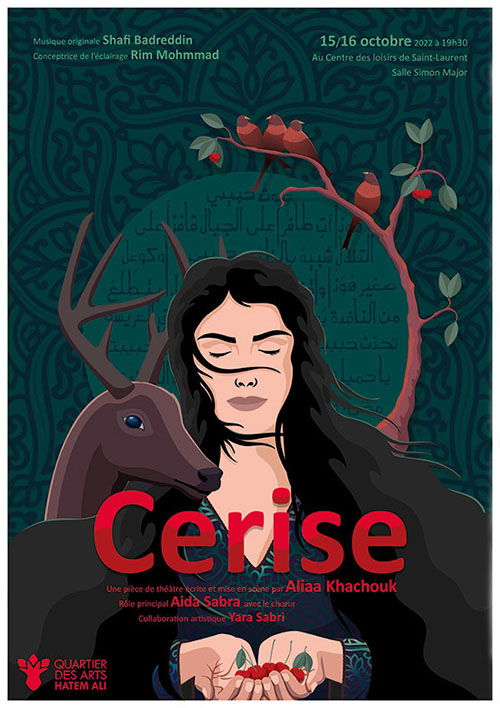
These artists, who had fled the Middle East due to disasters in recent decades, were experiencing grief that was difficult to overcome as a result of being deprived of their dreams. But in July 2020, a group of Canadian cultural workers and artists in exile decided to pool their experiences and contacts to create multicultural projects in theatre, film, dance, music and writing. After two years of delay due to the Covid pandemic, the Quartier des Arts Hatem Ali — named after one of the founding members who died suddenly at the end of 2020 — finally opened its doors. A community organization run by a group of active members, including Aida Sabra and her husband Zaki Mahfoud, the collective is chaired by Aliaa Khachouk.
“You can reinvent yourself at any age…I see life as a process,” says Aida Sabra. Three years ago, just one month before the explosion in the port of Beirut on August 4, 2020, she, her husband and their two sons had to pack up for a second time and head for Montreal. “We had no choice, life had become too difficult in Lebanon,” she explains. “The economic crisis since 2019 has ravaged everything. The socio-cultural face of the country is changing. Freedoms are being stifled. The diversity that gave rise to all these movements and ideas in the 1970s is now under threat.”
Returning to Montreal after an initial exile from Lebanon in the 1990s, the renowned 60-year-old actress was this time forced to take a job teaching drama to kindergarten pupils. However, fate smiled down on her when Wajdi Mouawad got in touch, asking her to play Jacqueline, the titular mother in his play, Mère, on the recommendation of Odette Makhlouf (who plays her sister Nayla in the play). “Working with Wajdi Mouawad and the Théâtre de la Colline has raised me to a more professional level,” she said. Mère will tour France once again in 2024.
Playing Jacqueline in Mère meant reliving the war in Lebanon: the car bombs, the sleepless nights away from home….At the time, Sabra was just a student. “We weren’t afraid, we were defiant. But when you have children, everything is different. You start to fear for them. As soon as I sensed danger, I’d lock them up at home to keep them safe,” she recalls. “In Montreal, I came into contact with women who were in a permanent state of anxiety. That’s what Mère is trying to show: how war crushes people like a steamroller.”
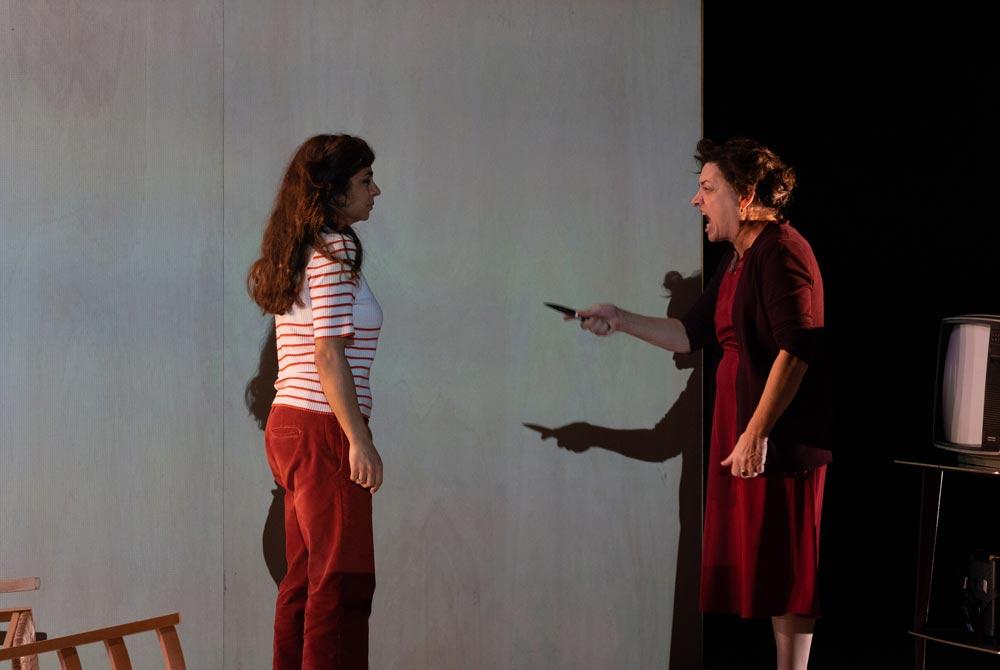
A long journey
The play premiered in the autumn of 2021 at the Théâtre de la Colline in Paris, giving Parisian audiences the chance to discover this actor for themselves, after she’d already achieved fame in the Middle East. Sabra’s performance as Jacqueline in Mère earned her praise from French critics as well as the nickname of “courageous mother.” It’s a description that suits her perfectly, for in real life, the actress is a woman firmly rooted in reality, balancing her role as a committed artist with that of a loving, devoted mother.
Born in Beirut in 1962, Sabra witnessed almost the entirety of the Lebanese civil war (1975-1990), which, in her words, “is still not over.” In 1982, when the fighting was at its height in Beirut, she joined the Faculty of Dramatic Arts at the Lebanese University, where she met her future husband, the intellectual and journalist Zaki Mahfoud. Despite the war, she still describes the 1980s as a happy period. “Theatres flourished on every street corner in the cosmopolitan neighborhood of Hamra. Today, most of these theatres have closed, and the only ones that have survived are dilapidated and poorly equipped,” she laments.
Devoted to her craft, Sabra sees art as a means of speaking for and influencing others. As early as her first year at university, she joined the Hakawati theater company, directed by Roger Assaf, to replace an actress in the play Ayyâm el-Khiam (Days of Khyam). She soon went on to work with a host of leading Lebanese directors, including Yaacoub Chedraoui, Fayek Hbaysi, Boutros Rouhana, Jawad el-Assadi, Lina Abyad, Nehme Nehme and others.
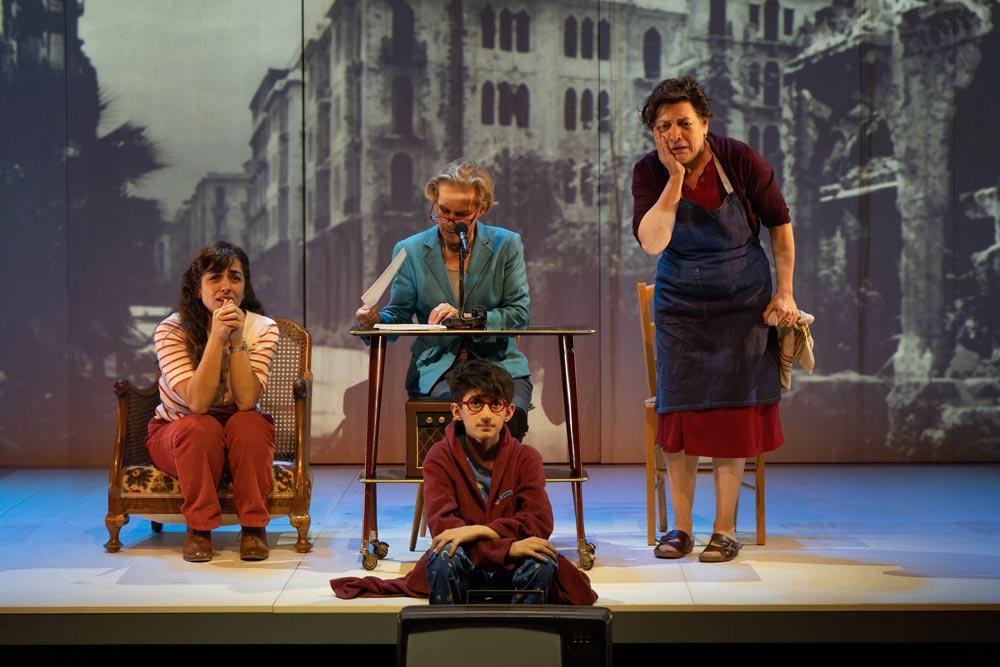
Raising awareness
In the early 1990s, the artist, then in her thirties, had already immigrated to Canada for the first time with her family, in order to benefit from services as basic as water, electricity, public transport, education and health care, as she puts it. After five years in exile, she returned to her homeland, and began to make her mark as a writer and director, with plays such as Hammam ‘oumoume (Public Bath) about the situation in Lebanon, and Mamnou’ el-Lams (Forbidden to Touch) about the problems of women in a conservative Middle Eastern society. In Taqs Beyrouth (Time in Beirut), Sabra lent a voice to two miserable people in the city as they dialogue about what led them to their situation.
Then, in 2016, the actress branched out yet again by beginning to make videos. She directed herself in the role of Set Najah, which she had once played in the TV series of the same name, which had made her a household name (written by Ahmad Kaabour and Fayek Hbaysi, and broadcast on Future TV in 1995-1996). “People loved this comic character so much that I saw it as a way of raising awareness of the need for all Lebanese to unite and demand our rights as citizens,” she says. “Set Najah has a very fine understanding of the political situation and society.” In one of the most emblematic videos, this elderly Beirut woman finds herself stuck in the elevator: an embodiment of the country’s problems. No one tries to get her out, and Set Najah ends up dead…”
These days, Sabra is busier than ever, as in parallel with the run of Cerise, a revival of which is already scheduled for November 23 at the Maison de la Culture Ahuntsic in Montreal, the actress has just finished shooting two short films. With the tour of Mère on December 2 and 3, 2023 at the Carthage Festival in Tunisia, then January 17 and 18, 2024 in Mulhouse, January 26 and 27, 2024 in Madrid, February 9 and 10 in Martigues, and February 14 and 15 in La Rochelle, the Lebanese star confirms her slow but steady rise towards an international career.



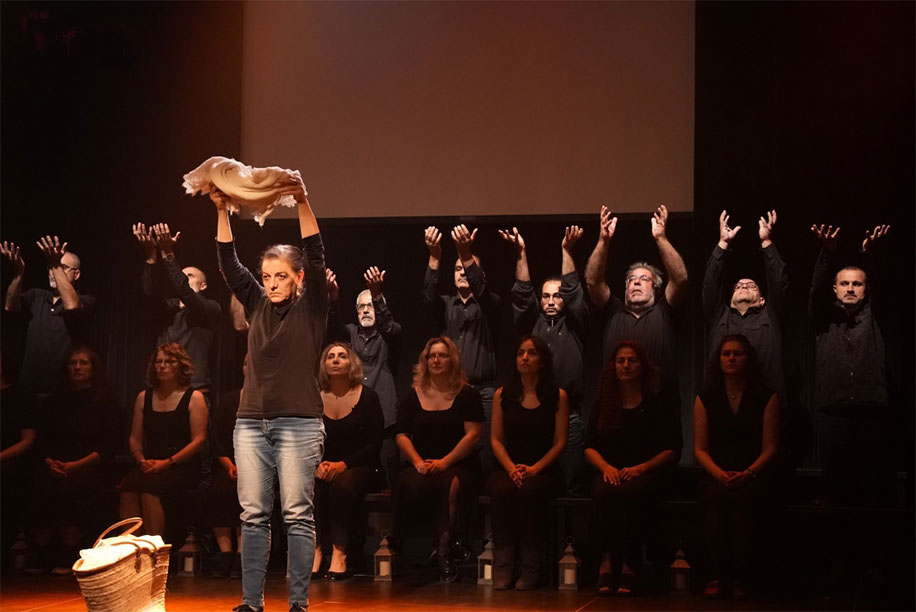
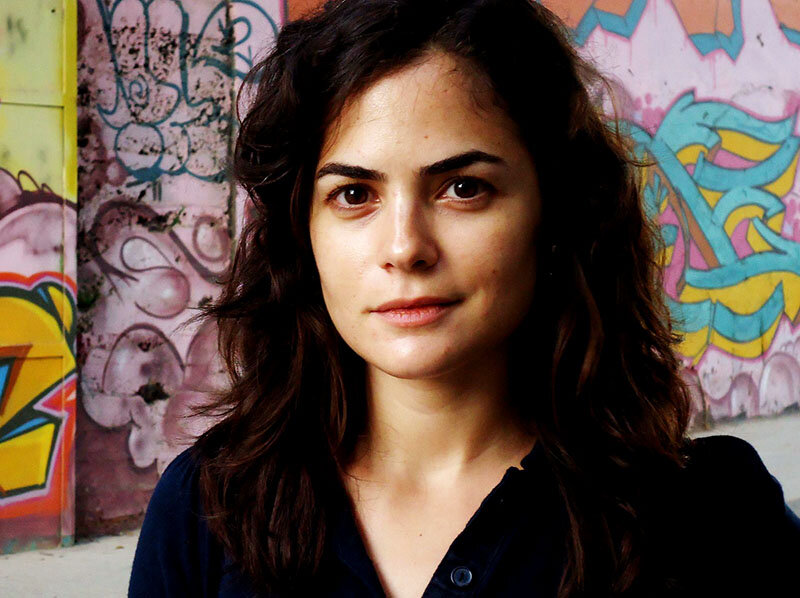


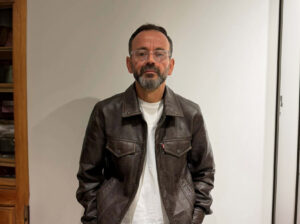


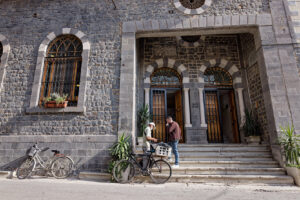
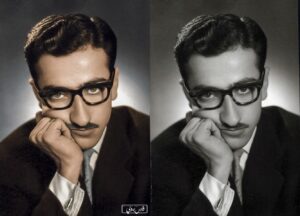



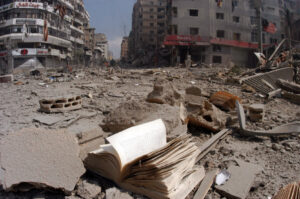



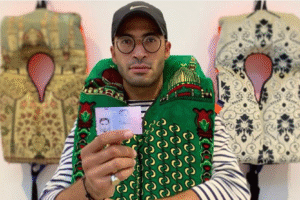





![Ali Cherri’s show at Marseille’s [mac] Is Watching You](https://themarkaz.org/wp-content/uploads/2025/09/Ali-Cherri-22Les-Veilleurs22-at-the-mac-Musee-dart-contemporain-de-Marseille-photo-Gregoire-Edouard-Ville-de-Marseille-300x200.jpg)




































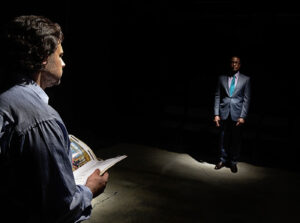

































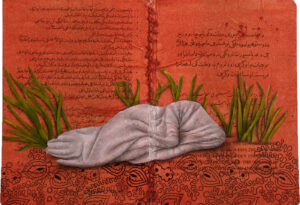


















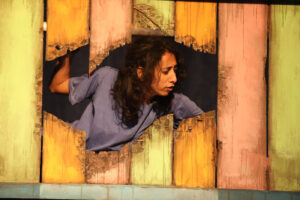















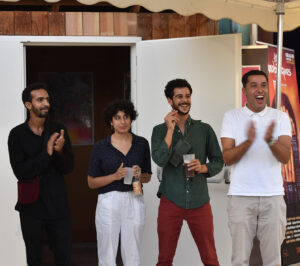









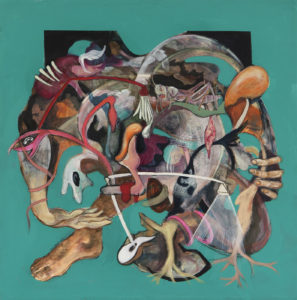









































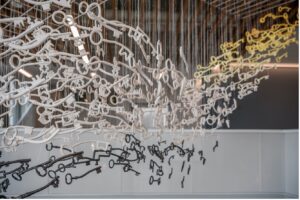













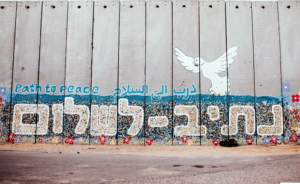








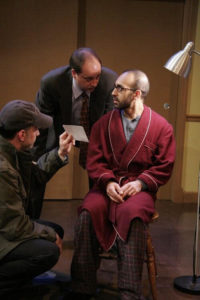


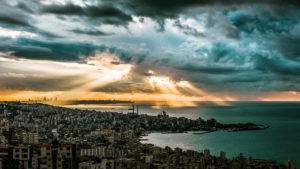





I had the chance to Watch the play Mère from Wajdi Moawad in le Théatre de la colline in Paris back in May 2023 and AÏda Sabra is amazing in i. I waited outside the Theater and when I saw her coming out I kissed her and congratulated her on her fantastic performance Long Life to you Aïda